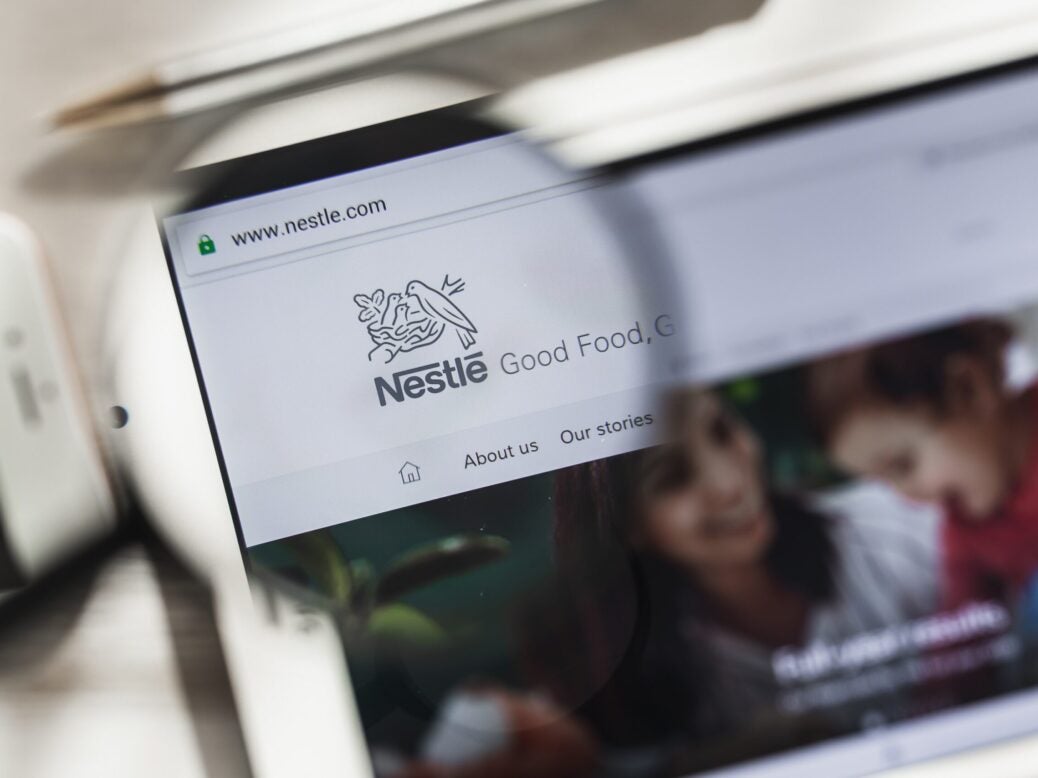
Nestlé is providing EUR40m (US$40.7m) to Paris-based Enterome for an R&D project targeting food allergies and inflammatory bowel disease (IBD).
Enterome is a biopharmaceutical company developing immunomodulatory drugs based on its bacterial Mimicry technology. Mimicry is described as a “drug discovery platform” capable of “decoding the interaction between the gut microbiome and the immune system”, and coming up with therapies from a database of peptides and proteins.
The world’s largest food company will collaborate with Enterome through its Nestlé Health Science division, which has been expanding of late through M&A.
The R&D and licensing partnership aims to develop and commercialise Enterome’s EB1010 inducer under its EndoMimics trademark.
“EB1010 is a potent local inducer of IL-10 designed to provide improved therapeutic outcomes for patients with food allergies and IBD,” Enterome said, referring to Interleukin 10, an anti-inflammatory cytokine peptide. EB1010 is due to enter clinical trials next year.
The project, Enterome added, will also “identify and create a pipeline of novel AllerMimics (allergen immunotherapies for food allergies) using Enterome’s Mimicry platform with an initial focus on peanut allergens as the basis for a novel class of immunotherapies that aims to suppress allergic reactions”.
Hans-Juergen Woerle, the chief scientific and medical officer of Nestlé Health Science, said: “Approximately 220 million people around the world live with food allergies, while seven million live with inflammatory bowel disease. Through this collaboration, we are aiming to develop novel therapies for these two disease areas with high unmet medical need.”
To date, Enterome said it has raised EUR116m from life-science investors in Europe and the US and a further EUR100m from “pharmaceutical partnerships”.
Enterome CEO Pierre Belichard added: “We are thrilled to sign this R&D agreement to develop a new pipeline of novel AllerMimics candidates as well as further develop and commercialise EB1010, our lead EndoMimics candidate, with Nestlé Health Science. The signing of this collaboration further highlights both the potential and growing interest in our Mimicry platform as a source of novel immunotherapies.”
Last month, Nestlé struck a deal for New Zealand business The Better Health Company, which makes the supplement brand Go Healthy and Egmont Manuka honey.
Other transactions made through the Nestlé Health Science division include the acquisition of health foods and supplements firm Puravida in Brazil and the purchase of a majority stake in US-based Orgain, a supplier or protein powders, snacks bars and shakes.
Last year, the group snapped up the vitamins and supplement brands of US-based The Bountiful Company in a deal valued at $5.75bn. That transaction included the Nature’s Bounty, Solgar, Osteo Bi-Flex and Puritan’s Pride lines, as well as Bountiful’s private-label business.


